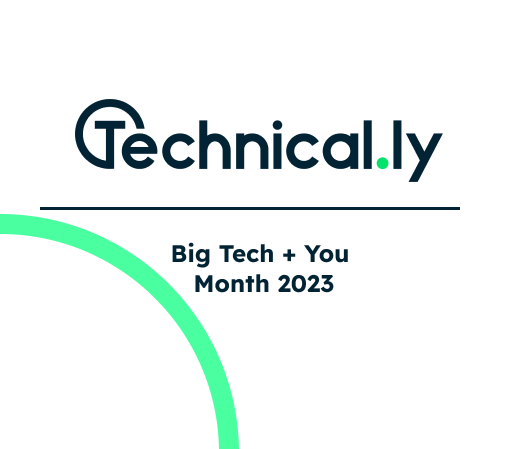Let’s get this out of the way: This article is written by a human being. No AI bots were harmed during the writing (except during the occasional unwanted interruptions by Alexa).
Toward the end of last year, ChatGPT took over our holiday dining tables and our 2023 vision plans as OpenAI’s launch of this “generative pre-trained transformer” hit the internet. Questions around the future of specific industries and job roles took over social media — all of while Big Tech companies laid off tens of thousands of their tech workforce.
This isn’t the first time questions about the future of technology and the job economy have been raised. Every 50 years or so, a new invention makes some practices and tools obsolete. Ada Lovelace, the first computer programmer, wrote the earliest recorded program to compute a series of numbers. She famously wrote: The analytical machine “can do whatever we know how to order it to perform. It can follow analysis, but it has no power of anticipating any analytical relations or truths.”
This sentence has stood the test of time. As technology advances, one must not fear, but embrace the idea of technology changing their careers as well as an organization’s data strategy. Per Ada Lovelace’s comment, the computer can do what we ask it to do. But the lingering gap is where the future of your data strategy lies. You need pros who are able to identify those analytical relations and truths.
If you are a data leader predicting your data strategy for the next five years, you must invest in your talent as much as you invest in your technology. Invest in data professionals who are statistically strong, and who are able to weed out insights that do not add value to the mode.
You will need distinguished and diverse talent to run your technology. A diverse workforce consists of individuals from different socioeconomic backgrounds, is inclusive of all genders and races, and is inclusive of those with non-STEM backgrounds. As tech advances, we need individuals who can bring a diversity of thought through lived experiences and world outlook to inform its development. (See: the racial bias built into some facial recognition software.)
This is where I would like aspiring data professionals to focus on building their professional brands. In 2022, venture capital investment in generative AI companies topped $1.37 billion, per PitchBook. With the rise of tools that will allow analysts and data scientists to perform their job more efficiently and with fewer errors, the need for highly skilled professionals who are able to provide valuable insights into the models’ findings will be the sweet spot.
If you are a data pro feeling uneasy with all that is going on in the hiring space, do not fret. Instead:
- Go back to basics — Think of AI as your friendly calculator. It might tell you the answer to a complex math problem, but it is up to you what you do with that answer, the way you interpret that answer and tell a story will that answer will differentiate you.
- Do your homework — Keep an eye out for the new tech stack requirements in your industry. Track different job descriptions to see what are some of the common tools that organizations use for analyzing their data. Keep in mind that although the tools might do the heavy lifting of your job in the future, you will still need to be a data translator.
- Think about data privacy — The responsibility of maintaining boundaries and ethical usage of data will lie in the hands of the data talent. Be wise.
To quote Lovelace again, about the analytical machine: “Its province is to assist us in making available what we are already acquainted with.”
This new generation of technology will make it cheaper for us to scale, increase revenue and drive impact to our world. But it can’t replace a good data pro.

This editorial article is a part of Big Tech + You Month 2023 in Technical.ly’s editorial calendar.
Join our growing Slack community
Join 5,000 tech professionals and entrepreneurs in our community Slack today!
Donate to the Journalism Fund
Your support powers our independent journalism. Unlike most business-media outlets, we don’t have a paywall. Instead, we count on your personal and organizational contributions.

Maryland firms score $5M to manufacture everything from soup to nanofiber

National AI safety group and CHIPS for America at risk with latest Trump administration firings

Immigration-focused AI chatbot wins $2,500 from Temple University to go from idea to action


